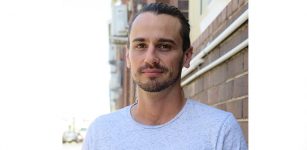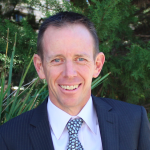Pill Testing, Not Penalties: An Interview With Take Control’s Kieran Palmer

Two young people died after taking drugs at the Defqon.1 festival in September. At the time, there was saturation policing at the music festival. There were 194 police officers deployed at the event, some of whom were accompanied by drug detection dogs.
The tragedy sparked renewed calls for the roll out of pill testing trials in NSW. This harm reduction strategy – which is supported by the majority of the community – saves people’s lives as it informs those who use it whether substances that they’re contemplating taking could be dangerous.
In response to the deaths, NSW premier Gladys Berejiklian tasked an expert panel with investigating how to improve safety at festivals. And in doing so, she specifically ordered the panel members not to consider pill testing.
The premier then announced last week that her government’s new strategy would be to get tougher on drugs. She outlined that ineffective policing at festivals would be intensified, as officers would now be issuing on-the-spot fines of up to $500 for those found in possession of drugs.
An evidence-based approach
NSW police commissioner Mick Fuller was one of the three members of the music festival safety panel. During the announcement of the more-of-the-same tough on drugs stance, he bizarrely stated that pill testing is a “myth” and that there’s “no science behind” it.
The state’s top cop has obviously not spoken with the authorities in nations such as the Netherlands, Spain and Switzerland, where pill testing has been successfully saving lives for years. Indeed, he could also consult the pill testing best practice guidelines produced by the European Union.
Authorities in the ACT sanctioned the nation’s first pill testing trial at the Groovin the Moo festival in April this year. On the day, the staff undertaking the testing detected a substance that can prove fatal in the samples taken from the drugs of two festivalgoers.
This means that two lives were potentially saved by the service, as after those individuals were informed of the contents of their drugs, they both decided to deposit them into the amnesty bins that were provided.
A sensible approach
Launched by the Noffs Foundation in September, the Take Control campaign is advocating for the roll out of pill testing in NSW, along with a number of other sensible reforms around illegal drugs, including ending criminal charges for minor drug possession.
Take Control spokesperson Kieran Palmer believes the NSW government’s recent tough on drugs announcement was misguided. And he stated that the police commissioner’s claim that pill testing is a myth was a dangerous idea to put out there.
Mr Palmer ought to know. He began working with the Noffs Foundation back in 2005 as an alcohol and other drugs worker. Today, he’s the clinical services manager for all its programs nationwide.
Sydney Criminal Lawyers® spoke to Mr Palmer about the Berejiklian government’s response to safety concerns at music festivals, as well as some of the less obvious benefits that pill testing has and the other drug reforms the Take Control campaign would like to see implemented.
Firstly, Kieran, what do you think about the Berejiklian government announcing that in response to the deaths of two young people at a music festival they’re not only going to continue on with their tough on drugs stance, but they’re going to further intensify it?
It’s really quite saddening, because of what it actually means. We can get frustrated with some of the government’s responses to different things. And frustrated in terms of policy.
But, when we really stop and think about it, these are people’s sons and daughters, and brothers and sisters. And that’s the part that really gets quite sad.
It’s frustrating to hear that the NSW premier had taken the time to put together a panel to have a look at this, but basically said from the outset that it wasn’t going to be entertaining something like pill testing. Then to come out and use words like pill testing is a myth is incorrect.
And it’s a decision that’s largely based on fear. Fear of what it might mean. It’s certainly not an opinion based on the evidence from the experience from overseas and what we trialled in our own backyard.
Take Control supports the implementation of pill testing. As you’ve just touched upon, the Berejiklian government told the panel prior to its investigation that pill testing wasn’t to be contemplated.
What do you think about the NSW premier establishing an investigation into music festival safety and then completely ruling out any consideration of this harm reduction strategy?
It’s counterproductive, and time and resource wasting. Essentially, what the panel has comeback with is almost a rebranding of business as usual. It’s much more of the same.
What’s been suggested as a potential solution -or at least a way of working towards something more positive – is more of the same: cracking down and getting even tougher.
It reminds us of the war on drugs again, which has been a colossal failure, not only in Australia, but worldwide. And not only recently, but for such a long time.
We’ve done the law enforcement approach and it hasn’t worked to reduce harms. It hasn’t worked to reduce deaths. It’s great at filling gaols with drug users, not big time drug dealers. And they’re the ones we really want to catch. It doesn’t seem to do that.
It causes untold deaths worldwide. And again, it fills gaols up with people who generally could receive support and help, rather than these lifelong criminal charges that stay with them.
It’s certainly counterproductive.
In your understanding, what would change with the introduction of pill testing?
What we’ve seen both here and overseas is that the positives vastly outweigh any risks.
What we’re seeing now is a hesitation to do something that does require a bit of bravery from the government, because on the surface, it’s got all the old hallmarks of “it’s condoning drug use” and “it’s telling people it’s OK”.
Essentially, what we’d be likely to see – because it’s what we see overseas and it’s what we saw here – is actually the opposite.
It’s an opportunity, particularly for young people, to be educated on what’s in their substance. So, it increases their ability to make an informed decision.
It allows those punters who do enter the pill testing tent – who may actually have either an established drug problem or the beginnings of a drug problem – to talk to someone and to start a conversation that may head things in the right direction.
And it also has a lot of flow-on effects. It allows people to find out what’s in their drugs and to throw out anything that’s potentially lethal and toxic. I mean right there, that’s a bit of a no-brainer in itself.
But, it actually provides us with information about the marketplace. The trouble we have now with any illicit drugs in Australia is that we have no control over the situation whatsoever. We’ve got no control over the manufacture, production, distribution, pricing, quality or anything like that.
Essentially, we put our heads in the sand and say, “You know what, criminal syndicates, you take care of this for us. You make it. You work out what goes in it, distribute it and work out the pricing. And we’ll hope for the best.”
And unfortunately, not the best, but the worst happens sometimes and kids die.
So, by offering pill testing and actually rolling it out, what it does is it starts to give us information about the marketplace. It gives us information about the quality of drugs. And it actually forces the black market to be very careful about what they’re selling.
Because if word starts getting out that a particular pill is really bad – or word gets out that a pill is less harmful – it forces dealers to actually be distributing the stuff that’s less harmful. Because word gets out that a pill can be potentially lethal.
So, there are all these flow-on effects. And it all gives us far more control.
Take Control is a campaign that was launched by the Noffs Foundation in September, which is calling for reforms around illicit drugs. Besides the roll out of pill testing, what other reforms is the campaign pushing for?
Take Control works on a five point common sense plan. Rolling out pill testing is one of those.
We also want an increase in treatment services. That’s a big one. We know that a lot of people who take up illicit drugs stop on their own. The majority of people who try illicit drugs don’t go on to have full blown dependency problems.
But, for the ones that do, we know that there are a number of reasons some can’t get the help and support they need. One reason is there’s not enough spaces and waiting lists are really long.
The treatment places aren’t spread out either. They tend to be centralised around big cities. But, we know that people in rural and remote areas have their issues with substances as well. Also, there’s the stigma around being seen as a zombie, a junkie or a criminal.
So, we want an expansion of treatment services. And looking to shift the balance in terms of where the funding is going. At the moment, it’s very much in favour of the law enforcement side of things, and not in favour of the health side of things.
No one is suggesting we put law enforcement out of the picture. It needs to be there. But, certainly, the balance needs to shift.
We want a roll out of drug monitoring rooms, so that people who are suffering difficulties with drugs or people who are intoxicated don’t have to be in hospital waiting rooms. That can be for any substances.
Certainly, we also want an expansion of engagement services and early intervention services to try and engage at-risk populations early on, similar to what we’re doing at the Noffs Foundation.
We know that drugs don’t discriminate. But. we know that certain populations are typically at a higher risk, due to things like poverty. So, early intervention services.
And finally, an end to criminal charges for minor possession. As I said, prisons aren’t full of big time drug dealers or criminal bosses. And things are far more positive and sustainable for people who go through treatment programs, rather than a custodial sentence.
They’re the five common sense things about the campaign.
Your campaign has the support of former Australian federal police commissioner Mick Palmer. And he’s not the only Australian who used to be involved in exercising drug laws that’s calling for a new approach to illicit substances.
What’s the impact of having high-up authority figures – like Mr Palmer – declaring that the war on drugs has failed?
It points to a reality that’s around, but isn’t being seen at the moment. A lot of Australians are ready for this.
In the polling that we’ve done through the Take Control campaign, when suggestions about pill testing, removing criminal sanctions for personal possession and discriminalisation are made, a lot of people are ready for them.
So, having someone like Mick Palmer there – someone who’s spent their career on both sides of the fence, having been right at the top of law enforcement and now on this side – is so valuable.
He’s actually been there, done that and seen that arresting everyone for having drugs on them doesn’t work. Some of these charges that people get for having ecstasy pills on them, or something like that, can be quite detrimental, particularly for someone who is already behind the eight ball.
Certainly, the group of people who we’re working with are people who are socioeconomically behind the eight ball. They may be growing up in poverty. They may have experienced trauma in their lives. They may have experienced domestic violence.
So, these are populations already behind the other kids at school. And to throw on these criminal charges on top of things basically puts them even further back. And it makes it really hard for them to get ahead and make a meaningful life for themselves.
The frustrating thing is we have all the answers to this. Look at how we have regulated tobacco in Australia. We’ve done it really well.
We’ve got some of the lowest tobacco uptake rates amongst young people in the western world. We’ve got less kids taking up cigarette smoking than we’ve ever had before. This generation is smoking less than any generation before them.
And we didn’t do it by getting harsher on penalties and making it illegal. We got smart about it. We regulated it. We made it near impossible to smoke in doors. Then we made it hard to smoke outdoors. We taxed it. We put it in plain packaging. We pulled it out of advertising.
Essentially, what we did is made being a smoker uncool. You’re no longer in the cool group if you are smoking. It’s the opposite now. You’re the one person who has to go out and have a smoke. It’s not the cool thing to do anymore.
We did that really smartly. We didn’t need to get harsher on it. And Mick Palmer says this perfectly, there’s actually still a tobacco black market going on, but it’s so tiny that it’s entirely manageable for law enforcement.
The illicit drug market is completely out of control.
And lastly, despite the NSW state government’s call for tougher drug laws, there’s a growing acknowledgement within the community that the punitive approach to illicit substances isn’t working. And your campaign’s not alone in calling for change.
Do you think we’re at a pivotal moment where a shift in the approach to illegal drugs in Australia is imminent?
I hope so. But, nothing is going to happen quickly. And speaking on behalf of Take Control, we don’t necessarily think every issue will be solved tomorrow, or even that that’s the best way to do things.
We need to be very measured about this. We don’t want to jump into anything on a hunch. We need to be prioritising treatment, research, and putting together trials of different things. So, we can evaluate what’s working.
I’m hopeful that something is going to shift and that it’s going to shift soon. But, it’s going to take courage from the government to take these steps. Because it is something new. What’s going to change remains to be seen. And it needs to be staged.
At least at the very start, we need to have a shift in the conversation. That’s the first step. We want people to be able to stand around a barbeque on the weekend and talk about these kind of issues without it going straight to criminals, junkies or anything like that.







